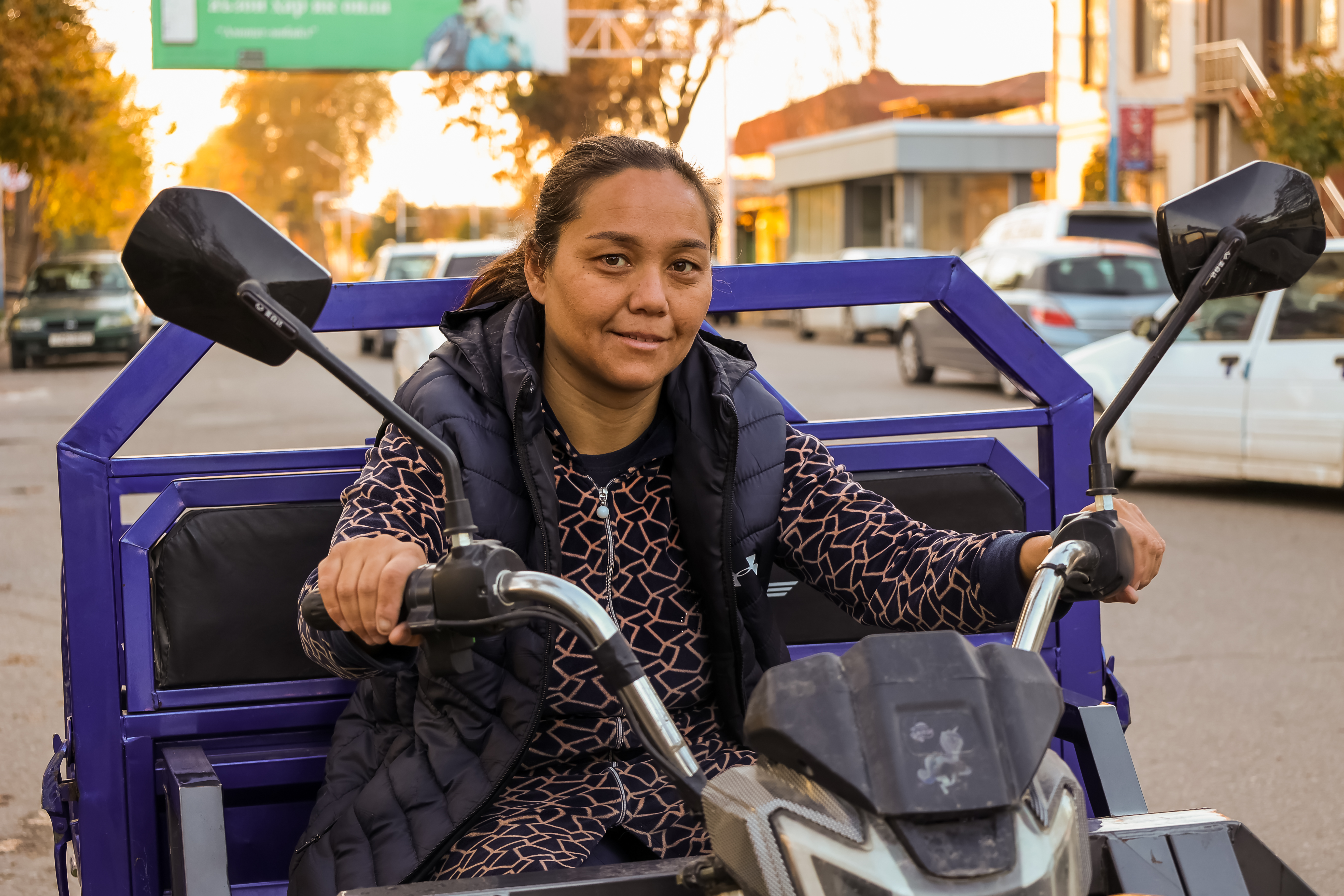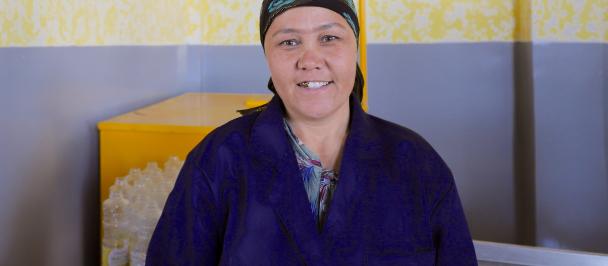Breaking free from disability stigma: From violence survivor to entrepreneur
November 29, 2023

Zulaikho driving her electric scooter, which she received from UNDP and the EU to expand her business.
Zulaikho, a 35-year-old Tajik woman, lives in a modest one-room apartment in Hissar, 15 kilometres west of Dushanbe, the capital of Tajikistan, with her eight-year old daughter.
Born with cerebral palsy, Zulaikho faced mockery from her peers at a young age.
“I was constantly teased at my regular school, and my twin brother Tokhir often ended up in fights to defend me,” she recalls. To provide a more conducive and supportive environment, Zulaikho's parents transferred her to a specialized school for children with disabilities.
In the 10th grade, she enrolled in a sewing lyceum for persons with disabilities and soon secured a job in a sewing factory in Dushanbe. At 25, Zulaikho got married and moved to Hissar to live with her husband’s family. “I got married in 2013 and divorced in 2015,” she says. “These were two very difficult years of my life.”
When her husband wasn’t there, his family would humiliate and insult her, Zulaikho says. “They said I was a handicap, and that they didn't want me in their family because of my disability,” says Zulaikho. “My husband wasn't there to defend me, and when I told him, he accused me of lying.”
Soon, Zulaikho’s health began to deteriorate. “Before getting married, I didn’t need a cane to walk, even though I have cerebral palsy.” The relentless humiliation at home was unbearable, and she filed for divorce while three months pregnant.
Determined to be self-reliant, she started a small retail business in 2015. “I didn't want to be a burden to my parents. I wanted to provide for myself,” she says. She sold children's toys, sweets, and various drinks from a cart, and sometimes worked in a shoe shop.
Zulaikho’s life took a positive turn when she learned about the UNDP’s women's entrepreneurship programme under the EU-funded Spotlight Initiative, which is aimed at improving the livelihoods of women and girls who have experienced sexual and gender-based violence in Tajikistan.
“Fate suddenly smiled at me,” says Zulaikho. A few months after completing a business training course in 2021, she drew up a business plan and won an electric scooter from the project.

Zulaikho selling toys and sweets in the town of Hissar.
“I got the scooter, and both my life and business improved,” Zulaikho says. The scooter enabled her to expand her business and increase her income by delivering and selling more products, and she even provided delivery services for her neighbours. With the extra money, she was able to afford furniture, kitchen appliances, a television, a washing machine, and a new entrance door for her apartment – luxuries that would have taken years to save for otherwise.
“One thing I regret is that I tolerated domestic violence for too long,” she reflects. “I lost my health in that relationship, and that’s something you can’t get back. My advice to women suffering from violence is not to tolerate it.”
For anyone experiencing violence, know that help is available. You can call the hotline 1313 for free legal and psychological support and assistance for survivors of domestic and gender-based violence. The hotline operates as part of the EU-funded Spotlight Initiative, in cooperation with the Committee of Women and Family Affairs under the Government of the Republic of Tajikistan.

 Locations
Locations